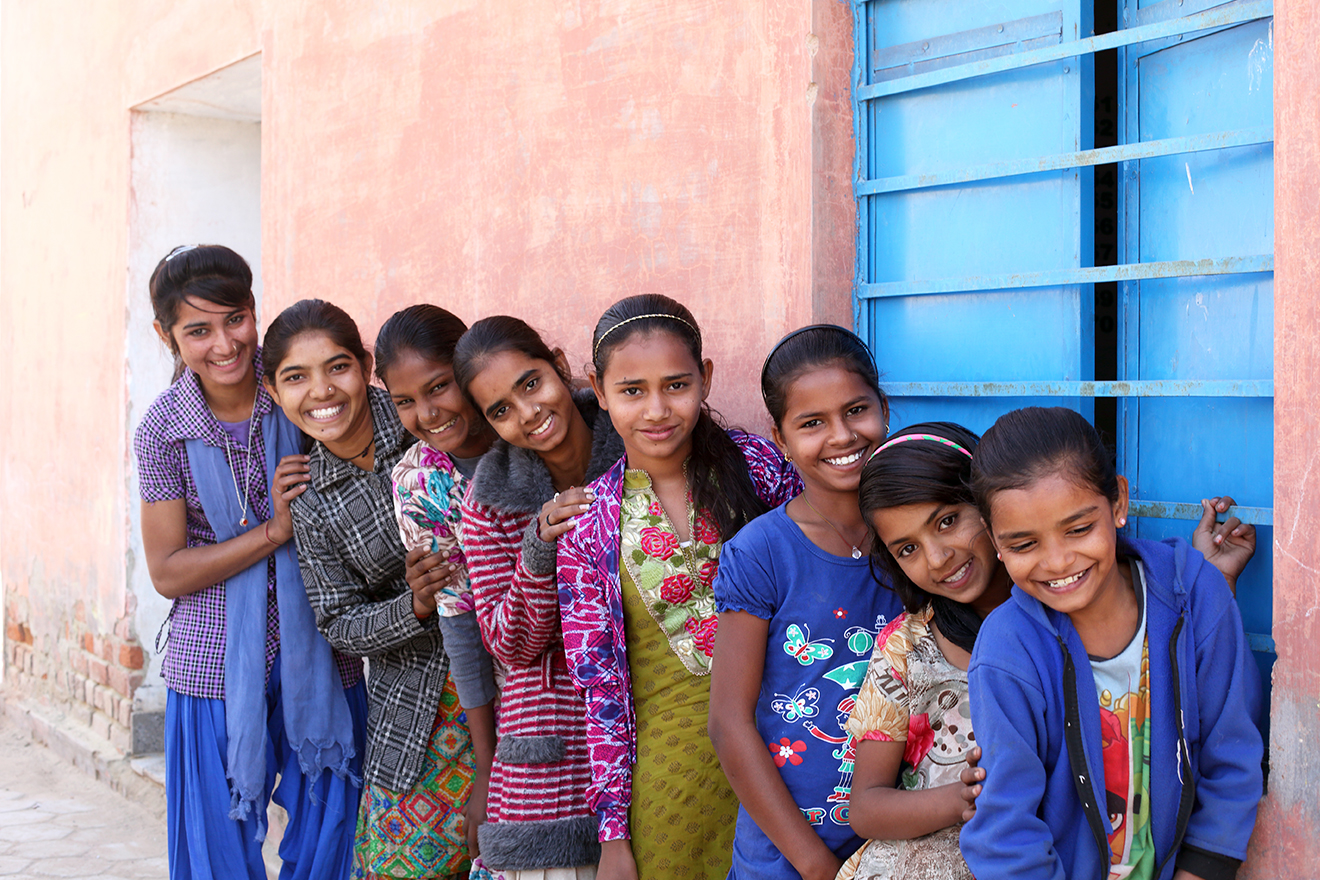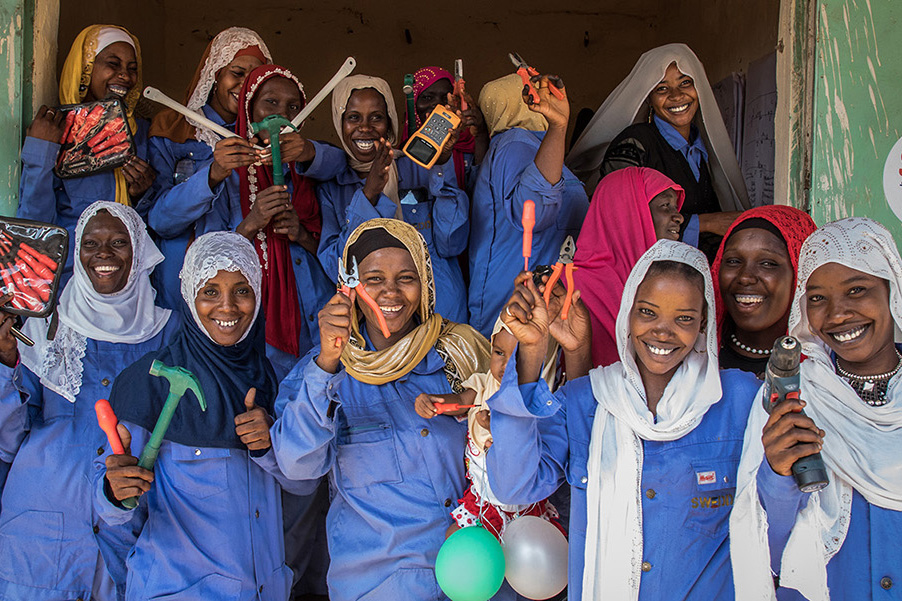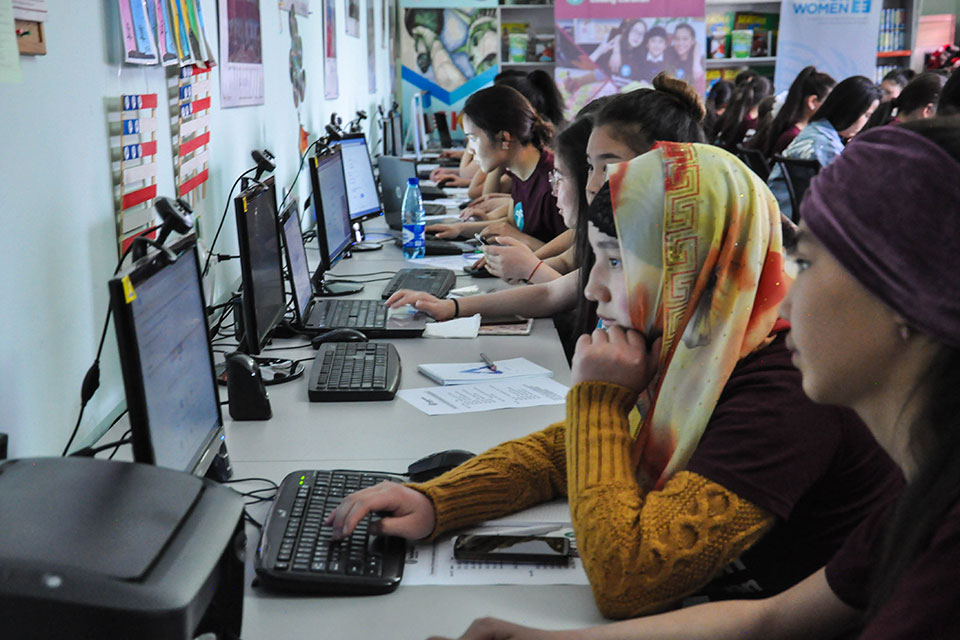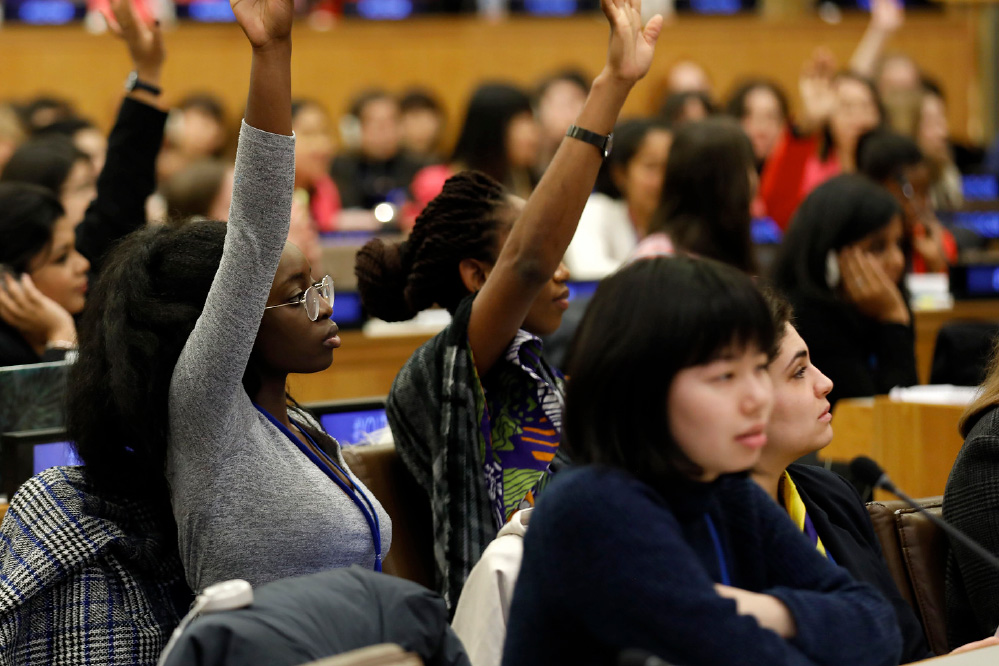Since 2012, 11 October has been marked as the International Day of the Girl Child. The day aims to highlight and address the needs and challenges girls face, while promoting girls' empowerment and the fulfilment of their human rights. Nearly 25 years ago, the 4th World Conference on Women culminated in the adoption of the Beijing Declaration and Platform for Action; the most comprehensive policy agenda for the empowerment of women. This year, under the theme "GirlForce: Unscripted and Unstoppable," we celebrate achievements by, with, and for girls.
Women and Gender Equality
Investing in girls’ education and keeping girls in school is the critical first step in opening up opportunities for women in the Sahel.
"How do we get more women in politics?" asks Global Sustainable Development Goal Advocate, Alaa Murabit. As a UN High-Level Commissioner on Health Employment and Economic Growth, she has seen first-hand how our experiences and opportunities in childhood shape our future realities and potential: "If, from a young age, a girl or woman does not feel she has power over her own body, it can be a challenge for her to believe that she should run for public office." She also calls for transforming 'our cultural assumptions about what traits define leadership.'
Not Waiting for Handouts: 5 Stories of Resilience From One of the World’s Largest Refugee Camps
In Burkina Faso, a new type of school is transforming the habits and mentalities of married men and future husbands.
In rural Kyrgyzstan, Coding Caravan encourages girls’ leadership and entrepreneurship
Women and girls represent half of the world’s population and, therefore, also half of its potential. Gender equality, besides being a fundamental human right, is essential to achieve peaceful societies, with full human potential and sustainable development.







